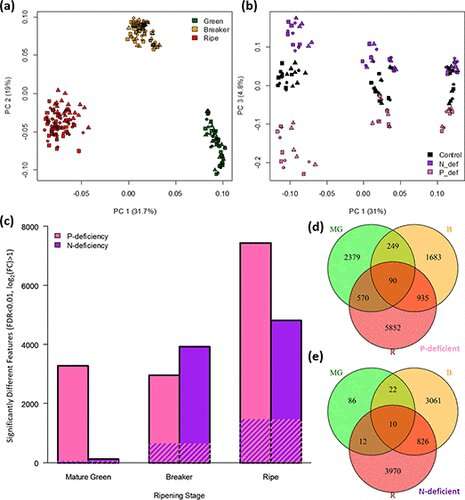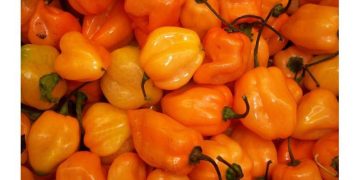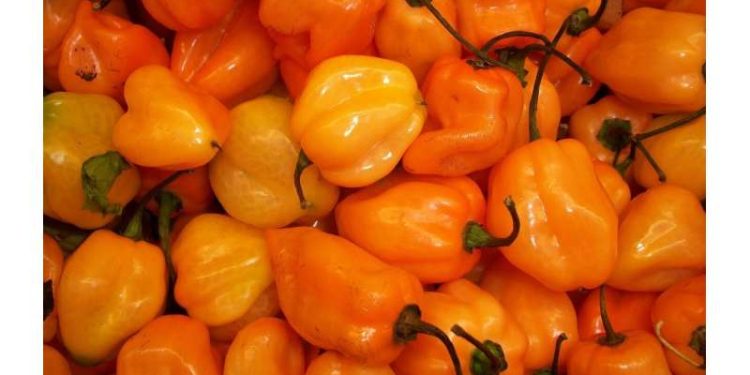Like people, plants have to cope with stress. The impact on humans is well catalogued, but less is known about how stressors—including high salinity and lack of nutrients—affect plants such as habaneros. Now, researchers report in ACS Agricultural Science & Technology that these conditions change the levels of natural compounds in the peppers. The results could have ramifications for growing peppers and for their shelf life after harvest.
Habaneros are prized for their aroma and flavor, which combine a citrusy and smoky taste with an extra-hot kick. That heat comes from capsaicinoid compounds, but peppers also contain vitamins, carotenoids, flavonoids, phenolic compounds and other metabolites that contribute to the fruit’s flavor, as well as its antimicrobial, anti-inflammatory and antioxidant properties. The peppers are an important crop in Mexico, but environmental conditions in the region aren’t optimal, with low levels of nitrogen and phosphorus and high levels of salt in the soil.
In a prior study, Rocío I. Díaz de la Garza and colleagues assessed the effect of these stresses on pepper growth and the levels of a few of their metabolites. In the current research, de la Garza, Carlos Rodríguez-López and colleagues went much deeper, evaluating the effect of these conditions on thousands of metabolites in the fruits.

Peppers were grown under five different conditions: control, low phosphorus, low nitrogen, medium salinity and high salinity. They were harvested at three growth stages, and extracts were purified and then analyzed by mass spectrometry. The researchers found that metabolite changes were most evident in ripe fruit. Nitrogen deficiency reduced the concentration of some metabolites but raised others, while phosphorus deficiency lowered metabolite diversity.
The authors say that this loss of diversity could make harvested peppers less resistant to pathogens and pests. The experiments also identified a salinity threshold, above which metabolites begin to change because the plants could no longer counteract the effects of excess salt.
Insight into metabolic adjustments will become more important as climate change intensifies stress on crops, the researchers note.































